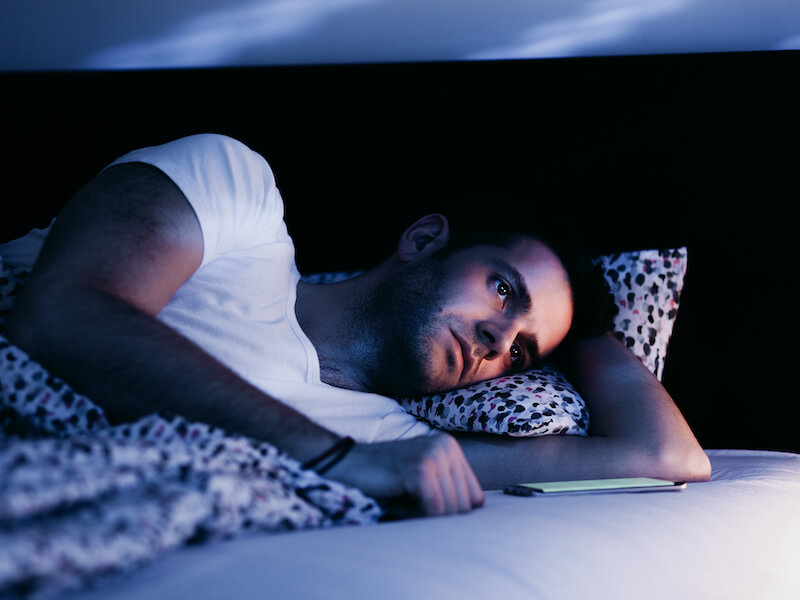
Snoring is something that’s annoying to you and your partner but it’s normally thought of as not much more than an aggravation. However, a condition known as sleep apnea can frequently be the cause of snoring.
Sleep apnea is a sleeping disorder that can cause you to stop breathing when you’re sleeping. You should definitely take sleep apnea seriously because even though it’s not that uncommon, sleep apnea can have severe health implications.
What is sleep apnea?
Formally, sleep apnea is a breathing disorder. Obstructive sleep apnea is a condition that is the most prevalent type of sleep apnea here’s some info:
- When you fall asleep, your body gets very relaxed.
- The relaxed tissue blocks your airway.
- Throughout the night, you stop breathing because you’re unable to inhale or exhale through this blockage.
- This type of blockage, in some cases, can happen dozens or even hundreds of times all night.
Usually, symptoms of sleep apnea include:
- You have a snoring issue.
- Even when you get a good night’s sleep, you still feel tired.
- Your partner is noticing that you sporadically stop breathing when you sleep.
- Headaches when you wake up.
- A dry mouth or dry throat when you wake up.
Is your snoring linked to sleep apnea?
Snoring is very common, so how do you know when it’s normal (and non-harmful) and when it might be sleep apnea? You can generally watch out for one of the two manifestations:
- Loud, deep snoring: Typical, snoring is caused by a restriction in your airways, generating light, high-pitched noises. Deep, loud snoring is usually caused by a collapse or near collapse of your airways (sleep apnea).
- Snoring that ends in gasping or choking sounds: In this situation, your airway collapses and your body notices the choking or gasping sounds are the result of your body straining to breathe. It may not even be something you notice, if you have a partner, ask them about these choking or gasping sounds.
Symptoms could differ from person to person, but if you think that you are developing sleep apnea, it’s important to talk to us about diagnosis and treatment.
Diagnosing sleep apnea
Sleep apnea isn’t something you can diagnose on your own. In most cases, you’ll have to talk with us about scheduling a sleep study. We might order one of two types of sleep studies for you:
- Home sleep test: A home sleep test is a simplified sleep study and it comes with a device that you can use in your own home. Instead of going to a clinic for testing, you hook this device up when you’re in your own bed. Airflow, heart rate, and blood oxygen levels are usually tracked with these home sleep studies. The issue is, these tests can sometimes deliver inconclusive results. When this type of study fails to get precise results it will be necessary to have a follow-up study performed at our clinic.
- Nocturnal polysomnography: This is the conventional overnight “sleep study.” A nocturnal polysomnography will take detailed measurements while you sleep. You will be hooked up to an assortment of monitors while you sleep in a special medical room. While more inconvenient, nocturnal polysomnography is a lot more reliable than home sleep tests.
Sleep apnea will typically be ruled out or verified by these diagnostics. In some circumstances, you might be referred to an Ear-Nose-and-Throat doctor to rule out a possible blockage.
How is sleep apnea treated?
It’s important to follow up on the proper treatment once sleep apnea is diagnosed. For most people, sleep apnea management will rely primarily on the use of a continuous positive airway pressure (CPAP) device. All through the night, this device essentially blows air into your lungs. This assists your breathing throughout the night and helps prevent your airways from collapsing.
But CPAP machines are often quite uncomfortable. That said, most people positively adjust to them (and sleep better) after a short time period.
In other, more serious cases of sleep apnea, there are some different solutions. Anything from different devices to surgery, or both, could be incorporated in these other therapies. Be sure you come in and speak with us as there’s no one-size-fits-all answer.
It could be more than snoring
Sleep apnea is all too easy to disregard and to write off as little more than extra loud snoring. But your health and your quality of life can be impacted by your snoring. Diagnosing and managing your sleep apnea can help you get better sleep and stay healthier.
Resources
https://www.mayoclinic.org/tests-procedures/polysomnography/about/pac-20394877